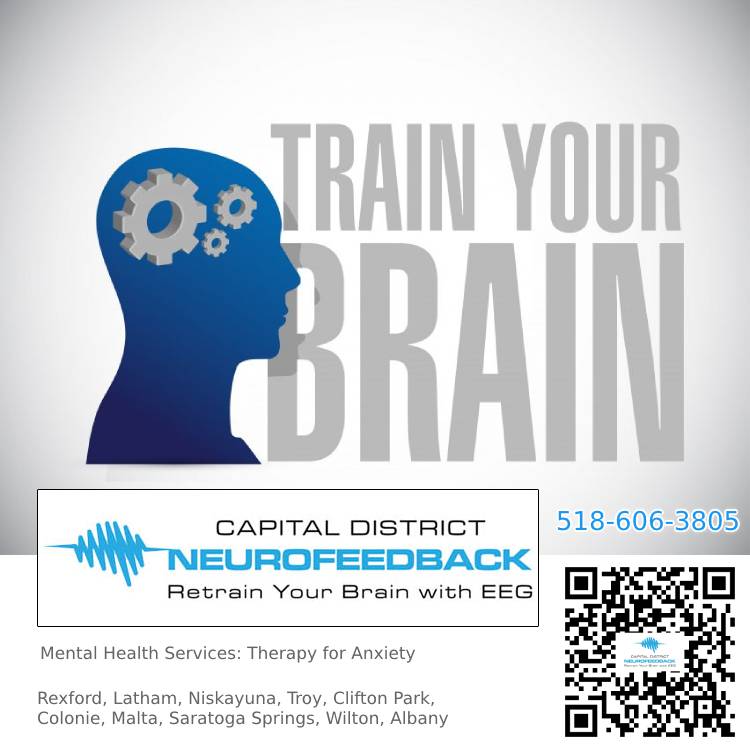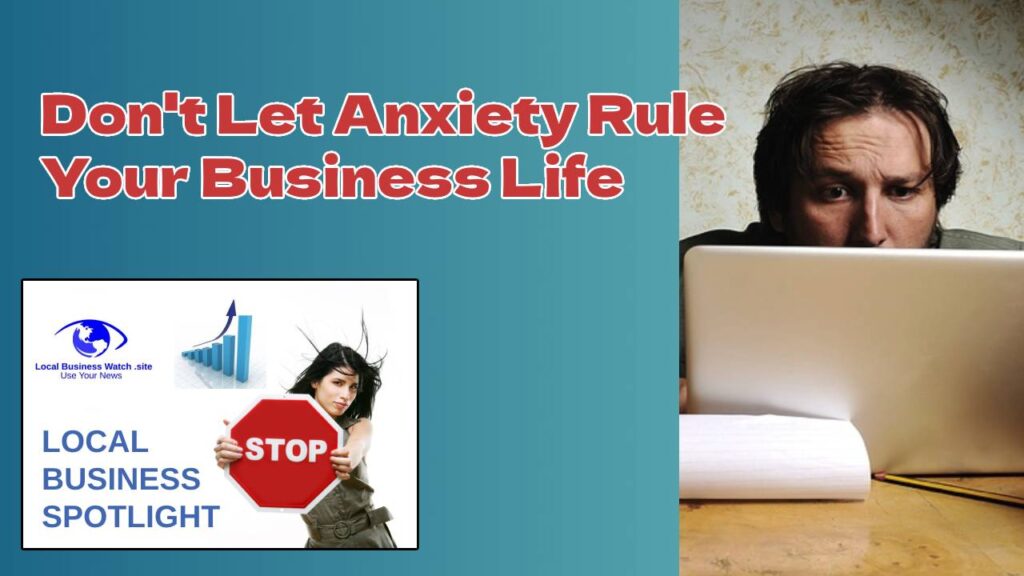Don’t let fear rule your life
The references here to the different types of anxiety are not meant to diagnose you. But you may find them useful if you go to a doctor, psychologist, or counselor who uses these terms.
Anxiety is not a new phenomenon since COVID-19 and associated events like as unemployment and business closures have not contributed to it. According to the National Institute Of Mental Health, Anxiety disorders affect 40 million people in the United States alone. As the most common mental condition, therapeutic options are plentiful; nonetheless, only 36.9% of sufferers obtain care. Our brains are built to think about survival, which in ancient times required continual alertness. This survival mode, known as “fight or flee,” was a code for situations that required panic to go to a safer position. When anxiety becomes uncontrollable or is accompanied by extreme fear or concern, it can disrupt daily life. Fortunately, there are ways to reduce anxiety and anxiety attacks, and the best part is that they may be applied immediately and without the need for medication. It is critical to understand that natural medications may frequently be safely used with traditional medical treatments, but it is always best to see a doctor first. And as Main Street company owners, we may notice this tendency in our staff and even our consumers.
Anxiety problems frequently go unnoticed and untreated. Fortunately, therapy can be beneficial. The right therapy may improve the quality of your life, your relationships, and your productivity. It can also improve your overall health. You don’t have to be always concerned and nervous. If you see symptoms of an anxiety problem, see a doctor. It is best to get a diagnosis and treatment as soon as possible. This can help to mitigate the negative effects of anxiety disorders. Anxiety is frequently treated with a combination of medication and therapy. The information provided below may be useful to you in dealing with employees and customers and conflict resolution.
Fear can cause anxiety
Everyone is afraid of something. In contrast, phobias are unreasonable, severe, and seemingly all-encompassing fears. Fears of heights, small spaces, dogs, germs, bees, snakes, spiders, difficult-to-escape situations, and flying are examples of specific phobias. Specific phobias are the most common type of anxiety disorder and may include several of the symptoms listed on our list of anxiety symptoms.
Some people feel stressed in their stomachs. IBS patients have unpleasant digestive disorders such as stomach discomfort, constipation, and diarrhea. Irritable bowel syndrome and anxiety are linked because the neurological system partially regulates the colon. The nervous system’s reaction to stress may have an impact on the stomach.
Fifty to ninety percent of IBS patients also have an anxiety or depressive issue. IBS symptoms may be relieved by stress management and psychotherapy. IBS symptoms may be relieved by stress management and psychotherapy.
Anxiety… or Phobia?
A phobia is a strong dread of, or aversion to, specific items or circumstances. Although being concerned about some situations is understandable, the terror that people with phobias experience exceeds the actual risk offered by the scenario or object.
Individuals suffering from a phobia may have an unreasonable or obsessive concern with the dreaded object or scenario. They may actively avoid the scary thing or scenario. When they come into contact with the dreaded object or scenario, they suffer tremendous instant fear. They are terrified of inevitable items and circumstances.
Phobias and phobia-related diseases come in a variety of forms.
Certain phobias (also known as basic phobias) are defined by having a significant fear of or severe anxiety about specific things or circumstances. Fear of insects, certain creatures such as spiders, dogs, and snakes, and getting injections or blood are examples of specific phobias.
People with a social anxiety disorder (previously known as social phobia) exhibit an extreme, generalized dread or worry about social or performance circumstances. They are afraid that the activities or behaviors linked with their anxiety will be judged adversely by others, making them feel embarrassed. People who suffer from social anxiety frequently avoid social situations as a result of this dread.
People suffering from agoraphobia are extremely anxious about two or more situations: using public transit, waiting in line or standing in a crowd, and being outside alone. People suffering from agoraphobia frequently avoid these circumstances because they believe it will be difficult or impossible to go out if they experience panic attacks or other humiliating symptoms. A person suffering from the most severe type of agoraphobia may become housebound.

Separation anxiety is commonly assumed to affect just children, although adults can also be diagnosed with separation anxiety. People who suffer from separation anxiety are terrified of being separated from the people they care about. They frequently fear that something bad will happen to their carers or that something bad will happen to them while they are separated. Because of this dread, they resist separation from their caretakers and being alone. Separation anxiety patients may have dreams about being removed from their carers or feel physical symptoms when separation happens or is anticipated.
Selective mutism is a more uncommon anxiety illness. People with selective mutism do not talk in specific social contexts while having normal language abilities. Selective mutism commonly appears before age five and is frequently coupled with excessive shyness, fear of social shame, obsessive-compulsive tendencies, withdrawal, clinging behavior, and angry outbursts. Individuals with selective mutism are frequently diagnosed with additional anxiety disorders.
Anxiety and panic episodes are widespread. Panic disorders are rare, affecting just around 2% of the population. A person is diagnosed with panic disorder if he or she has at least four panic episodes per month over a prolonged length of time. Panic episodes are frequently unrelated to a specific scenario and occur on their own. When panic attacks occur regularly and there is a significant and persistent dread of another attack, panic disorder is diagnosed.
Know the signs of anxiety
Anxiety disorder symptoms might be comparable to those of a heart attack or other medical emergency. If you are having your first panic attack or are concerned about your health, dial 911 or go to the nearest emergency facility. If you are suffering an anxiety attack and unsure whether to go to the emergency department, it is preferable to leave. Health experts can ensure that you are safe and receiving the necessary therapy.
Keep these suggestions in your back pocket if your social anxiety comes up at work. Get away from your pals: One of the first reactions to anxiety symptoms is to distance yourself from those you care about. If you don’t want to spend time with your friends or spouse, it might be because you’re focusing all of your mental energy on managing your nervous thoughts. As you strive to remain calm, you are likely to detach yourself from the current moment and feel intellectually and emotionally drained.
New daily habits can reduce your anxiety
Obsessive behavior: Logically, you may know those worrying thoughts are simply that… concerns circulating in your brain but not your current reality. Many people, however, believe that these bothersome anxieties have taken over their thoughts to the point that they can no longer control them. You may constantly believe that something bad will happen to your loved ones or that they will die, and you may frequently pray for their safety.
When you’re worried, your brain goes into overdrive, and you may have an extremely short fuse when interacting with other people. Or, for that matter, with technology. Or even with your dogs. We have little time for small chats while we are obsessed with anxiety feelings, we can’t take it when anything doesn’t go our way, and we may even dispute with anybody who attempts to help us. Even if you’re not the type of person who lives for a party, you’re probably having a wonderful time. Remember that as anxiety rises, so does fear of social settings. Most individuals become more critical of themselves and are concerned about every contact with strangers and even their coworkers. You may be too concerned with how you appear, what others think of you, whether people are gossiping about you behind your back if no one likes you, and if you sound foolish when you speak. This is a symptom of social anxiety, and it frequently leads to people avoiding social events due to their worries.
Many people suffer their most extreme anxiety at the most inconvenient time of day: night.
People frequently lay awake in bed pondering and worried since all diversions have suddenly vanished. However, after the pressures of the day are passed, the ideas we brushed under the rug reemerge and demand our attention.
A not-so-fun truth is that the brain cannot tell the difference between an actual threat (such as a tiger following you) and a perceived threat (worrying about being fired or angry from a friend). When you are in a fight-or-flight scenario, whether real or imagined, your body adapts and tries everything it can to survive. Instead, the brain diverts blood away from the digestive system and into the muscles. The sensation might be described as a knot in the stomach, a weight in the stomach, or even butterflies flitting around. It’s critical to understand that the brain and stomach are linked since the gut contains more than 90% of serotonin. When our microbiota is harmed, we can get unwell.
Many individuals have financial anxiety when they are just scraping by, but even those who have more than enough to get by might be concerned. If you or your spouse loses your source of income, receives a hefty bill for medical treatment or property damage, or is forced to care for a sick parent, you will face significant financial strain. Anxiety can manifest as a result of stress. People might reflect on their connection with money and its significance in their life. When judgments are made that are not in line with the value of money, and as a result, intended goals are not met, some tension is unavoidable. For example, if money represents security and freedom, and you do not handle your money in such a manner that you may enjoy security and freedom, it will surely cause worry.
Get to the root of the Anxiety problem
Going into the workplace every day, whether you have toxic coworkers or a supervisor that micromanages you, is a definite way to create anxiety symptoms. The majority of individuals in the United States spend an inordinate amount of time at work or working, even at home. Most individuals read their emails in bed when the phone is only a few inches away from their pillow. Anxiety is caused by the persistent feeling that we must be connected. We are constantly available and expected to be available, which causes stress. The burden is harder, the workweek is longer and appears to go on forever since our smartphones keep us connected to work even when we’re on vacation. If you can’t shake the feeling that you despise your job, speaking with a specialist about suitable therapy can help. They can assist you in dealing with emotions of insecurity, loss of control, and self-control at work.
Anxiety can be environmental, hereditary, or chemical, and all three elements – your circumstances/environment, DNA, and chemical makeup – all play a role in the development of an anxiety condition. Many chemicals in our brains influence our mood. Serotonin, GABA, dopamine, and norepinephrine are the key ones that influence anxiety. Anxiety can arise when the levels of these neurotransmitters are disturbed. This implies that if your mother or father had anxiety, your odds of having it increased, especially if you witnessed their symptoms firsthand.
Friendship may bring you notes of encouragement, long conversations, and even a heartfelt embrace. But what happens when your friendships or sexual relationships are under stress? Many people feel pressure to be happier, better, and more helpful from the outside world, especially their local surroundings. When we feel like falling short, we are typically overwhelmed, leading to anxiety symptoms. The same reaction happens when someone we love and trust disappoints or betrays us, or when we go through a huge transition. Even lovely events, such as marriage or childbirth, can elicit terrible feelings. Most of the time, talking to a professional about these ideas and feelings is the best method to battle them.
Anxiety And Our Mobile Devices
Most of us are guilty of focusing more on our phones, laptops, and tablets than on our spouses, pets, or even our children. It’s easy to continuously check, scroll, or read the newest news in a world where you’re always connected. Too much technology, on the other hand, can produce anxiety symptoms since it overstimulates the brain and nervous system, practically developing an addiction. If we abandon our technology for a time and find ourselves continuously thinking about it, wondering what others are doing online and stating what we missed, we might develop anxiety over losing out. If being away from our electronics causes us anxiety, Whatley suggests talking to a close friend or coworker. This is due to our desire for connection and involvement, which our phones can deliver instantaneously. A simple discussion can have the same impact and help to alleviate unpleasant feelings.
Anxiety and the difficulties it creates, such as nervousness, sleeplessness, difficulty focusing, deepening depression, and overall bodily imbalance, are elements that wear down the body and mind. The following recommendations can assist you if you are seeking for a thorough solution that will allow you to minimize worry and tension to a minimum.
If you’ve spent days on end doing strenuous tasks, attempt to finish as soon as possible so you may relax. This is one of the secrets to keeping wakefulness’s tiredness and fatigue (which are so beneficial throughout the day) from turning into worry. Finish early, take time to rest, and disengage from the outside world, especially if you’re tired. Valerian, for example, has a relaxing effect, decreases irritation, and improves sleep without producing reliance or issues such as night terrors or feeling heavy the next day. It’s the ideal answer for restoring your normal sleep cycle and calming your nervous system.
The post Don’t Let Anxiety Rule Your Business Life appeared first on https://gqcentral.co.uk











Comments are closed